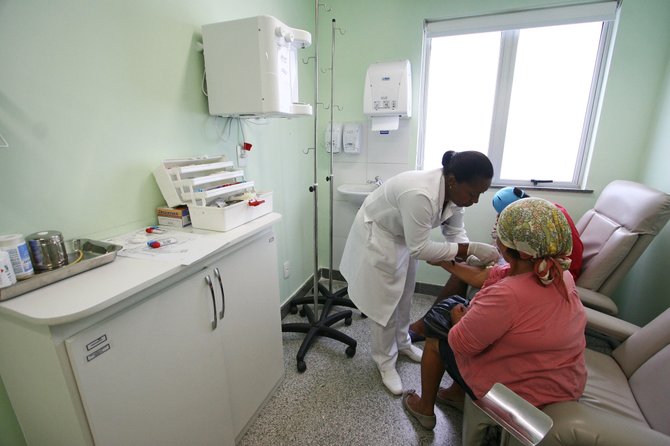A new report from one group promoting Medicaid expansion looks at Medicaid expansion's effects on regions and local communities.
Even with the intense debate that has taken place over the last year or so, the conversation over Medicaid expansion in Mississippi has remained somewhat abstract, focusing on the costs and benefits to the state and to the health-care industry in broad terms. A new report from one group promoting Medicaid expansion goes a step further and looks at Medicaid expansion's effects on regions and local communities.
The report, authored by David Becker and Michael Morrisey, both researchers at the University of Alabama at Birmingham, affirms previous studies showing millions of dollars in additional economic activity would come from adding more people to the state-run insurance program for the poor.
Their analysis shows that Mississippi taxpayers would spend $579 million between 2014 and 2020, but draw more than $1.4 billion in tax revenues as a result, and generate over $14 billion in total new economic activity. It would also create 20,000 new jobs and provide an $848 million increase in net state and local tax revenues.
Those benefits would eventually trickle down to cities and counties. Jackson would get the biggest boost, representing more than $1 billion in total economic activity over the seven-year period between 2014 and 2020; Medicaid expansion would also mean 2,712 new jobs for the capital city area, Becker and Morrissey wrote.
"When new Medicaid enrollees have access to health coverage, they will also have more disposable income to directly spend in other sectors of the economy such as grocery and retail stores and even housing," Becker said. "The billions in new federal funding would create a demand for thousands of new jobs, a healthier workforce and a stronger state economy."
Medicaid-expansion advocates, who lost a legislative fight to expand the program, believe the numbers make a solid case for lawmakers to revisit expansion in the next session.
"By refusing to expand Medicaid, our state leaders are costing our cities and counties thousands of new jobs and economic activity," Roy Mitchell, the Mississippi Health Advocacy Program's executive director, said in a news release.



Comments